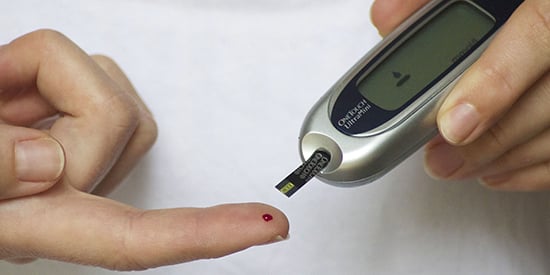New international project examines impact of hypoglycaemia
Media release
A Deakin psychology researcher has joined an international project pushing for a re-think on how diabetes is treated, with an aim to address one of the condition's most common and serious complications - hypoglycaemia.
Professor Jane Speight, Foundation Director of the Australian Centre for Behavioural Research in Diabetes at Deakin's School of Psychology, said hypoglycaemia - low blood glucose - was a serious issue for people with diabetes.
"Managing diabetes is a balancing act of self-regulating insulin, food and physical activity to maintain an ideal blood glucose level," Professor Speight said.
"Glucose levels can drop too low at any time, day or night, if any of these are out of balance, or due to other factors such as stress, hormones, illness, and hot weather.
"Severe hypoglycaemia can lead to collapse without warning, impacts on memory and thinking, cardiovascular disease and, in rare cases, even sudden death."
But despite the serious effects of 'hypos' as they are commonly known, Professor Speight said current approaches to managing diabetes were more focused on preventing long-term complications such as blindness or amputation, than these short-term acute complications.
That's where new global project Hypo-RESOLVE is hoping to bridge the gap, helping the estimated one in 11 people living with diabetes worldwide.
The four-year, $42 million project brings together researchers, clinicians, industry and those living with diabetes to increase understanding of the causes and impact of hypoglycaemia, and identify better solutions to prevent and manage it.
Professor Speight is co-leading the psychology work stream of Hypo-RESOLVE (one of eight streams), focussing on the psychological impact of hypoglycaemia, working alongside Professor Frans Pouwer from the University of Southern Denmark.
"Naturally, managing the everyday risk of hypoglycaemia can have a significant psychological burden on those living with diabetes," Professor Speight said.
"Through this work, we will be conducting systematic reviews, new international qualitative studies and surveys, and a major new clinical study. We will be training the next generation of researchers focused on understanding and reducing the psychological burden of hypoglycaemia."
Professor Speight said she hoped the project would ensure that preventing hypoglycaemia, and minimising its impact on health and quality of life, would be taken more seriously as a consideration in trials of new diabetes medications.
"At the moment, the average blood glucose level - HbA1c - is often considered the most important outcome in the majority of diabetes clinical trials. But reducing HbA1c is often achieved at the expense of an increase in hypoglycaemia," she said.
"We've seen many impressive new treatments in the past 30 years, but unfortunately rates of hypoglycaemia have largely stayed the same. That's partly because there's not been a universally agreed definition of hypoglycaemia, or how it should be measured, and partly because the impact of hypoglycaemia has not been fully recognised.
"But we have to move the emphasis to addressing this issue because it's having a real and serious impact on the lives of people with diabetes."
Professor Speight said hypos could be a very scary experience, impacting peoples' ability to drive, travel alone, and look after children or grandchildren.
"Just one severe event can lead people to become fearful about having more, and it can severely restrict their independence and what they are able to do," she said.
"It also affects how people manage their diabetes. They might decide to keep their blood glucose levels higher as a result, to avoid hypos, but that is not an advisable long-term strategy because high glucose levels can lead to other complications like kidney damage, amputation, and blindness.
"In Australia, there are currently 1.27 million people living with diabetes. About 400,000 of those use insulin to manage their condition, placing them at risk of hypoglycaemia."
Hypo-RESOLVE is the 100th project funded by the Innovative Medicines Initiative, and is a joint venture of the European Commission and the European Federation of Pharmaceutical Industries and Associations, Juvenile Diabetes Research Foundation and Leona M. and Harry B. Helmsley Charitable Trust. Professor Speight’s Chair is funded by Diabetes Victoria.
This week is National Diabetes Week in Australia, running from 8 July to 14 July 2018.

